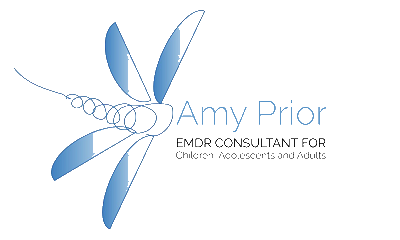Dramatherapy
Harnessing Drama and Creative Expression in Psychotherapy
Dramatherapy
Dramatherapy is a creative form of psychotherapy that utilises drama, art and movement techniques to help individuals explore their thoughts and emotions, understand behaviour patterns, learn new coping strategies and support their overall wellbeing. By engaging in creative activities, such as role-play, improvisation, storytelling, writing, games, and art materials, individuals are able to gain insight into their own stories within a safe and supportive environment. Benefits to this work include improved self-awareness, increased empathy towards themselves and others, better communication skills, and enhanced confidence.
It can be particularly effective for individuals who struggle to express themselves verbally or who prefer non-traditional forms of therapy. It can also aid individuals who are suffering from the effects of deep-rooted trauma, with creative expression allowing them to bring to the surface that which may have gone unnoticed on a conscious level but which has come to affect them in others ways within their everyday life. Dramatherapy can be provided within a group setting and on a one-to-one basis, depending on the needs of the individual.
Bethan: Empowering Healing Through Creative Expression in Dramatherapy
Bethan is a Sesame-trained Dramatherapist with a dedicated commitment to supporting children, adults, and families in navigating the complexities of mental health and emotional wellbeing. Having trained at the Royal Central School of Speech and Drama in London, Bethan returned to Wales and has been practicing in Cardiff since 2022. Prior to qualifying as a Dramatherapist, Bethan has had an extensive career in working with children and families for over 15 years, utilising the therapeutic qualities of creative expression, something Bethan learned the power of during her 10-year career in theatre and television as a professional actress.
During that time, Bethan has worked in various institutions in England and Wales, including primary and secondary schools, Barnardo’s, Steps2Recovery, MIND, and within private practice. Bethan specialises in working with children and adolescents, focusing on concerns including anxiety, depression, bullying, addiction, trauma, self-harm, suicidal thoughts, and domestic violence. Combining a wide variety of creative activities, such as art, movement, story, images, mindfulness, and games with Jungian and developmental psychology, Bethan aims to provide her clients with a safe space in which to explore and better understand their own patterns and stories and gain new knowledge in coping mechanisms to aid healing. Bethan remains steadfast in her goal to support people’s voices and embrace positive discovery with open arms.

Overall view of a Dramatherapy Intervention Plan (ranging between 6-20 weeks on average)
1.
Assessment: The therapist conducts an initial assessment to understand the client’s needs, goals, and challenges. This may involve interviews, questionnaires (e.g. CORE and CORE YP assessment forms), observations, and tests (e.g. Tree-Person-House).
2.
Goal setting: Based on the assessment, the therapist collaborates with the client to develop a Working Agreement for the therapy space and establish specific therapy goals. These goals could relate to improving communication skills, managing emotions, building confidence, or addressing specific psychological concerns.
3.
Treatment Planning: The therapist designs a treatment plan tailored to the client’s goals and preferences. This plan may include a variety of creative and psychodrama techniques, as well as verbal reflection and discussion, based on how the client prefers to work. However, it is essential that the therapist remains adaptive to the needs of the client during the intervention.
4.
Intervention: During therapy sessions, the therapist guides the client through experiential exercises using the techniques outlined above. These activities are designed to explore emotions, thoughts, and behaviours in a safe, confidential and supported environment.
5.
Processing: At the end of each session, the therapist facilitates discussion and reflection to help the client make sense of their experiences. This may involve exploring the symbolism, themes, and insights that emerge during the session. An overall reflection is then provided towards the end of the intervention, allowing client and therapist the opportunity to identify coping strategies and a safety plan moving forward.
6.
Skill building: Throughout the therapy process, the therapist helps the client to develop and strengthen coping skills, communication skills, emotional regulation techniques, and problem-solving abilities.
7.
Integration: The client is encouraged to apply insights and skills learned during therapy to real-life scenarios outside the therapy room. The therapist may provide homework assignments or suggest strategies for practicing these newly acquired skills in everyday life.
8.
Evaluation: Periodically, the therapist and client review progress towards therapy goals and make any necessary adjustments to the treatment plan. This ongoing evaluation ensures the therapy remains relevant and effective for the client’s shifting needs.
9.
Ending and follow-up: When the intervention comes to its agreed end or the client feels they are ready to end their therapy, the therapist facilitates a safe closing process to ensure as smooth a transition as possible. Follow-up sessions may be arranged if required, to provide additional support and ensure any further recommendations are put in place.
Contact Us Today
Take the first step towards positive change and reclaim your life with the support of compassionate therapist. Together, we can foster personal growth, nurture fulfilling relationships, and create a path of empowerment and resilience.
We provide mental health assessments, autism assessments, and bespoke therapeutic programmes and group work for children, adolescents, adults and families/carers in various locations across Mid Wales.
Following your enquiry Dragonfly therapy will contact you and provide a referral form and a service price list. We will then arrange an initial assessment appointment via zoom where you will have the opportunity explore possible treatment options.
Please note: We have limited slots available. Book your session today to reserve your spot.
By submitting this form you consent to your submitted data being collected and stored in accordance with GDPR regulations.
